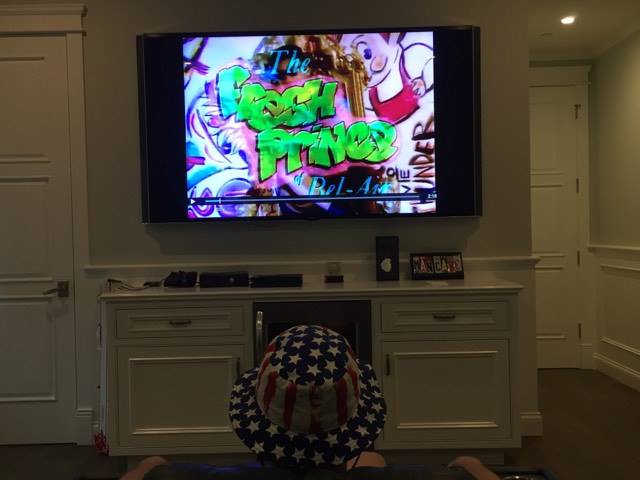Michael Schulman
Staff Writer
It’s a regular Wednesday night and while some are relaxing and unwinding with The Walking Dead or The Big Bang Theory, I relax and rewind with my favorite show of all time: The Fresh Prince of Bel Air. Though Will and the Banks family have not been on air for over 20 years, I find a way to spend 30 minutes with the family every night. A simpler time the 90’s was: N’Sync was still together, Shaq and Kobe liked each other, and technology was pretty much nonexistent. Why does this appeal to me? Why do I love reruns of a TV show that was made before I was born?
As it turns out, today’s modern pop-culture is actually anything but modern. Corporations try to capitalize on consumers’ nostalgia through retro toys, film and even food. Netflix, for example, brought back the 90’s family sitcom, Full House. All the old cast members were brought back not to finish an important storyline, but to tug at the hearts of fans who remembered the fondness of the show. While this may give Netflix an excuse to stop creating new shows, from a financial perspective, this is genius. They brought back Full House to cash in on all of the grown up Millennials who grew up watching the show. Millennials also happen to make up the largest percentage of viewership on Netflix. Nostalgia does not just affect Millennials, as I soon learned that older generations look to recreate the past too.
I used to think that my dad was not very sentimental about the past until I saw him watching the reboot of the 1980’s detective show, Macgyver. I tried explaining to him that the show “is not very good, and just a cash grab.” I was totally expecting him to defend it, but he simply said, “I know.” My dad was in college when the original came out and tells me that he is “reminded of college every time” he watches it. He watches Macgyver because it reminds him of a simpler time in the 80’s when he was a free, somewhat rebellious graduate student exploring Los Angeles on his own.
Theme parks, carnivals and baseball stadiums are examples of attractions that use nostalgia to boost their profits. Baseball, for example, is known as America’s pastime. The organ music, Cracker Jacks, and overall aesthetic of the baseball stadium transports me to the past. I have fond memories of watching the Dodgers and my favorite player, Shawn Green, with my dad. Even to this day, I go back to Dodger Stadium and eat the original chocolate malt that is only served at that particular place. Although I do not even think it is very good, I must have one every time I go to the ballpark. It’s tradition. I feel like I missed out and did not gain the entire baseball experience until I get my six-dollar ice cream. Everytime I step into a baseball park, I try to recreate a childhood memory that has long since faded away.
Psychologist Sigmund Freud was one of the first to note the power of the past. He believed that our childhood memories shape our personalities and behaviors. To an extent, he was right. Alan Hirsch from the Center of Consumer Research defined nostalgia as “a yearning for an idealized past, the bittersweet nature of it becomes clearer. One can never return to this past.” Our memories are not just images. They are special moments that define our character. Nostalgia can help us evoke some of these long lost feelings; however, we can never truly recreate the past.
So is there something wrong with being so fixated on the past? As we grow out of Heelys, Hot Wheels and Ring Pops, and enter the world of college, taxes, and responsibility, sometimes we need nostalgia to maintain a positive attitude.
I love The Fresh Prince of Bel Air because it reminds me of my family. As a child, during every family event or holiday, I would sit down with my cousins and watch another re-run of that show. Today, as I turn on my TV to watch the show once again, my heart warms with the memory of my childhood “cousin time.” The whole family is older now and we have all gone off on our own paths so we do not get that time together anymore. However, we can still benefit from nostalgia to make us feel better even on our worst days. That is why if I ever have a “rough day” at school, I always know that I can end my day with a much younger Will Smith and a story about how he became the Prince of Bel Air.



